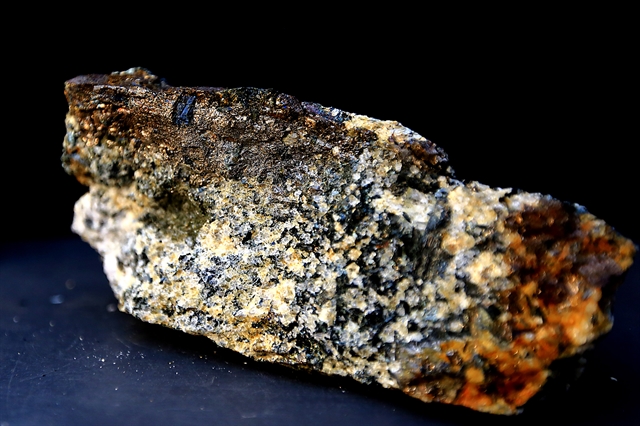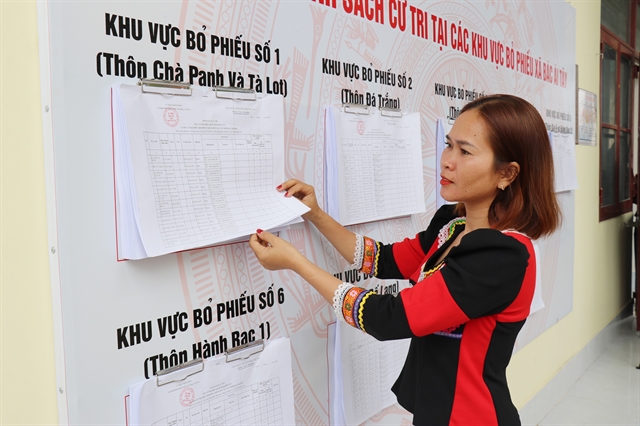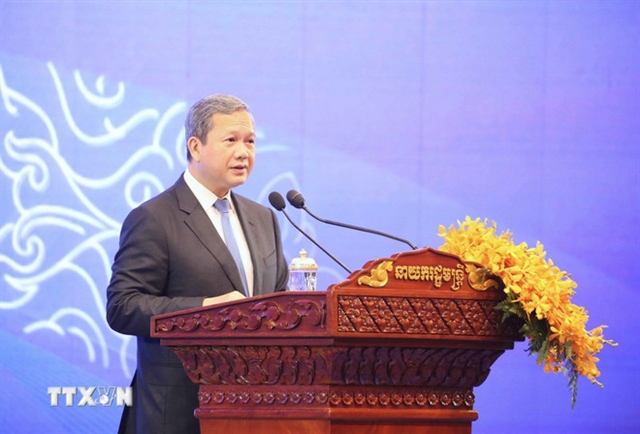 World
World

Peace talks between the rival leaders on divided Cyprus broke up in acrimony Thursday over a 1950 referendum, but the UN envoy said the process was still on track.
NICOSIA — Peace talks between the rival leaders on divided Cyprus broke up in acrimony Thursday over a 1950 referendum, but the UN envoy said the process was still on track.
UN envoy Espen Barth Eide said that although the meeting "was not a very happy one" and "ended up abruptly" the next round would still go ahead as planned next week.
"I am glad to convey to you that both leaders are committed to the process and nobody sees this process as over, terminated or even suspended," said Eide.
"There have been no cancellations as of now... no change to the programme," he said, stressing the next round would take place as scheduled on February 23.
Tensions have soared over the approval by the Greek Cypriot parliament for schools in the south of the island to mark the 1950 referendum on "Enosis," or union with Greece.
Turkish Cypriot leader Mustafa Akinci said that when the issue of scrapping the decision came up, his Greek Cypriot counterpart Nicos Anastasiades said there "was nothing else to say, slammed the door and left".
"At that point there was nothing more to do as this meeting needs to be conducted in an atmosphere of respect so we also left the meeting," he told reporters.
But Anastasiades said the Turkish Cypriot side left the talks first.
Akinci’s walkout was "unwarranted and without cause or reason", he said on television, adding that Eide, chairing the meeting, had also been "unaware of what happened".
’Emotional meeting’
Anastasiades said Eide had tried to persuade Akinci to return but he was "adamant" and left.
Eide himself later explained what happened.
"The meeting ended abruptly, which is unfortunate," said the UN envoy.
"At some point in an emotional meeting that was difficult for all participants, Akinci himself said that he left this meeting."
The 1950 referendum -- before Cyprus won independence from colonial ruler Britain -- overwhelmingly approved Enosis but had no legal value.
Almost 96 per cent of the island’s majority Greek Cypriots signed up in favour of union between Cyprus and the "motherland" Greece in the unofficial referendum held in churches and coffee shops across the island, according to its organisers, the Cyprus Greek Orthodox Church.
The new schools legislation, sponsored by the far-right ELAM party, essentially calls for secondary students to mark the referendum anniversary by learning about the event and reading leaflets dedicated to understanding the Enosis cause.
Some ’don’t want reunification’
In a letter to UN Secretary General Antonio Guterres on Wednesday, Akinci warned the move would cause "great damage" to the peace process.
Turkey has criticised Anastasiades for trying to make light of the referendum and demanded the Greek Cypriots change their "mentality" when it comes to accepting Turkish Cypriots as "co-owners of the island".
The two sides have been engaged in fragile peace talks since May 2015 that observers have seen as the best chance in years to reunify the island.
In January, the UN hosted talks in Geneva bringing both sides together for the first time with the three "guarantor powers" of Britain, Greece and Turkey.
Much of the progress until now has been based on the strong personal rapport between Anastasiades and Akinci, leader of the breakaway Turkish Republic of Northern Cyprus who was born in Limassol which is now in the south.
"The Greek (Cypriot) leader has acted from time to time hot-headedly," said Akinci.
"In the past we tolerated it until the last drop. It was not possible to tolerate this now."
Eide said there were "a number of people who want this process to fail and who don’t want reunification on these terms" and "those who want it to fail will be a bit more active".
"We must be aware that this is happening," said the envoy.
The eastern Mediterranean island has been divided since 1974, when Turkish troops invaded the northern third in response to an Athens-inspired coup seeking Enosis. — AFP




